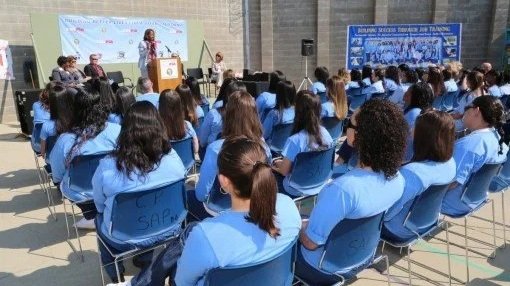SD legislator Wittman calls for reform in our criminal justice system, says we must build dignity, not just prisons
As a state legislator, I believe good policy doesn’t start in a committee room. It starts in the communities we serve. That’s why I was honored to participate this year in the Criminal Justice Reform Innovation Fellowship, a bipartisan learning initiative that brings lawmakers together with directly impacted communities, researchers, and practitioners to explore evidence-based solutions in criminal justice.
Last week, that learning took me to Philadelphia. Alongside fellow legislators from across the country, I had the chance to tour SCI Chester, home to a remarkable initiative known as Little Scandinavia. What I saw there challenged and inspired me. It is something worth South Dakota’s attention.
Little Scandinavia is a reimagined prison unit designed in partnership with corrections leaders from Sweden and Norway, and led by researchers at Drexel University and the University of Oslo. The project is rooted in a radical idea: that rehabilitation, dignity, and trust can form the foundation of a safer and more just system.
Inside, we toured cells designed with privacy and humanity in mind, not punishment. There were communal kitchens, outdoor spaces, and programming centered on education, conflict resolution, and reentry. Staff spoke about their roles not just as enforcers, but as mentors and guides. Residents talked about hope, change, and a chance to build a life after incarceration.
This wasn’t just a site visit. It was a reminder that the most powerful policy ideas often come from listening, not just to data, but to lived experience.
This is not just a pipe dream.
Right next door in North Dakota, the U.N.I.T.Y. Village inside the state penitentiary is already putting many of these same principles into practice. That unit, designed for young adults aged 18 to 25, brings together mentorship, family connection, and restorative justice in a housing environment focused on growth and rehabilitation.
Mentors within the incarcerated population help guide younger residents. Surveys show improved well-being, stronger relationships with staff, and fewer disciplinary issues. It is happening right here in the Midwest, and it is working.
It is especially important that we have these conversations now, as the South Dakota Legislature considers a proposal to build a new $650 million prison. If we are making that kind of investment, we must ask not only how many beds we need but also what kind of system we are building. Will it reflect the values of rehabilitation, restoration, and second chances? Or will it repeat the same cycles that have failed to reduce incarceration?
South Dakota faces many of the same challenges other states do. Our justice system is strained. Our rural communities are deeply impacted. And we know that simply building more space will not fix the underlying issues. We need policies that reduce harm, support reentry, and give people the tools to turn their lives around.
There is no one-size-fits-all solution, but we can learn from what works in other places. That is what this fellowship was all about, and it is why I am committed to carrying these lessons forward in our state.
In the coming months, I will be working to explore what South Dakota-specific reforms might look like. That could mean strengthening reentry support, investing in behavioral health diversion, or piloting new facility models that focus on safety and dignity for both residents and staff.
When we lead with empathy and evidence, we move closer to justice. And when we listen to those most affected, we write policy that lives where it matters: in people.
State Rep. Kadyn Wittman represents District 15, which encompasses downtown Sioux Falls. She regularly volunteers at the State Penitentiary in Sioux Falls. She has championed legislation to remove barriers for those experiencing homelessness.
Photo: California prison inmates at their technical education graduation ceremony, public domain, wikimedia commons
The South Dakota Standard is offered freely and is supported by our readers. We have no political or commercial sponsorship. If you'd like to help us continue our mission to advance independent political and social commentary, you can do so by clicking on the "Donate" button that's on the sidebar to your right.







